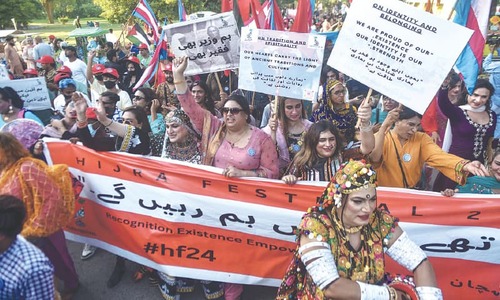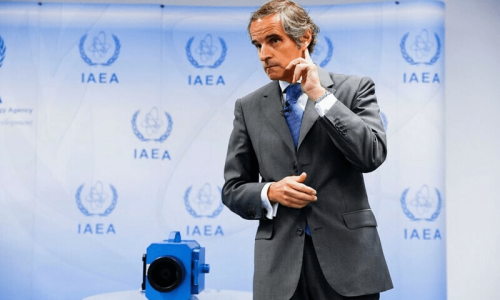KARACHI: A graft reference involving liability of about Rs800,000 corruption remains pending trial since 2015 in an accountability court in Karachi for want of evidence, it has emerged.
Saifullah Bholo, the then deputy secretary (administration) of the Sindh Workers Welfare Board and a private contractor were charged with embezzling funds meant for purchasing furniture and stationery items in 2014.
The matter is currently pending trial before accountability court-II following delays mainly on the part of the prosecution, which has failed to produce the documentary evidence and record testimonies of the witnesses.
In October 2015, the federal anti-graft watchdog filed the reference following approval from the then director general, NAB, Karachi retired Lieutenant Colonel Siraj-ul-Naeem.
Admitting the reference, the administrative judge of the accountability courts had transferred the case to the trial court concerned for initiating trial.
In the reference, the watchdog mentioned that a complaint was filed in April 2015 regarding embezzlement of funds by the officials of the Sindh Workers Welfare Board.
During the course of the inquiry, the watchdog said, it transpired that then deputy secretary (administration) Saifullah Bholo purchased stationery and furniture on fake quotations without completing the formalities required under the law.
Misusing his official capacity being then deputy secretary, Bholo had issued bogus work orders without mentioning specifications of supply items in violation of the Public Procurement Rules, 2004, it said.
The watchdog explained that the accused made purchases in 46 small portions and did not publicise it in at least two leading newspapers, as required under the law.
It maintained that a market survey revealed that the items were purchased on exorbitant rates, causing losses of Rs1,292,110 to the national coffers.
A furniture supplier, Haresh Kumar, offered to voluntarily return Rs381,865 and cleared the liability as permissible under Section 25(a) of the National Accountability Ordinance, 1999.
The accused Saifullah Bholo did not clear the liability of around Rs800,000 determined against him, therefore, the inquiry against him was converted into investigation and reference was subsequently filed against him.
He was arrested by NAB on March 4, 2016 and has been in judicial custody ever since.
The prosecution and judicial sources said that the trial remained pending for long since the accused waged a legal battle challenging the pecuniary jurisdiction of NAB to file a reference in connection with alleged embezzlement/corruption of an amount below the benchmark of Rs100 million previously set for it. However, the trial court rejected his plea.
Defence counsel Haq Nawaz Talpur told Dawn that his client later approached the Sindh High Court, which allowed his (Bholo’s) application and held that NAB lacked pecuniary jurisdiction to file a reference in matters involving an amount below Rs100m alleged to have been embezzled or misappropriated, etc.
However, NAB approached the Supreme Court against the SHC’s order, he added.
“The apex court overturned the high court’s order observing that it was the discretion of the NAB chief to file a reference in matters that might involve financial corruption below Rs100m, but involve other scheduled offences such as the misuse of official authority, etc,” Advocate Talpur added.
The judicial sources said that the evidence of two to three witnesses had not been recorded. “It’s a practice that on almost each date either the IO or the witnesses fail to turn up or they fail to bring original documentary evidence,” they added.
On Oct 18, the matter was fixed before the accountability court-II judge Aaliya Latif Unnar.
The official witness Anwar Ausaf produced two original memos regarding seizure of the alleged case property and photocopies of other documents.
But defence counsel Talpur objected to submission of the photocopies of the alleged documentary evidence by the witness.
Recently, the witnesses were produced for recording their testimonies, but the defence counsel sought adjournment.
The legal experts say the accountability courts are supposed to conclude the trial of a case within 30 days of filing of a reference in terms of Section 16-A of the National Accountability Ordinance, 1999. They express concern as to how a case involving comparatively less amount of money is lingering on for
years while the anti-graft watchdog is claiming to deal with cases involving mega corruption.
Published in Dawn, November 29th, 2019











































Dear visitor, the comments section is undergoing an overhaul and will return soon.